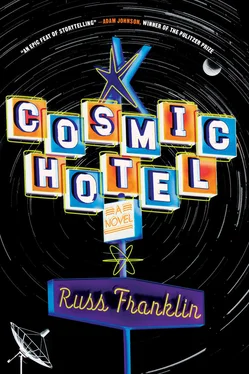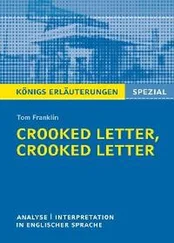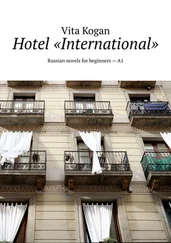On a national network, the world watched as Flight 000 taxied into position for takeoff at LAX, the spotlights shining on the fuselage and the giant black letters painted on the aluminum body: FLIGHT 000. It gained speed and lifted off, wheels up, and disappeared into the night just like any other jet. Viewers could go to the network’s website and track the aircraft across the country, but that was all we got: the icon of a 737 as big as the state of Delaware flying a curving path across the country.
The kicker was that Ursula made a smooth Kennedy Airport landing at dawn, and the media immediately approached passengers trying to find any clues to what had happened. Passengers looked sleepy but normal, deboarding and waving to the cameras and the crowd, most smiling and shaking their heads, some ducking and avoiding, some giving interviews that said nothing, but there was no comment from anyone about what had occurred during the flight.
Elizabeth predicted the network never expected them to remain silent. The big story was what happened to the people after the flight.
The network had regular updates with Flight 000 participants, showed them walking up to the airline counter and getting issued their ticket, smiling and waving as they disappeared, five minutes later, into the security line, and if the question was sneaked into the conversation, the standard response: “I have a lifetime pass to the world. Everyone depends on me, and I depend on everyone else. I will not comment.”
Amazingly, it took six days for the first person to break from that pat answer. This man was clearly frazzled and was being interviewed in a booth at a bar, a sales representative from Pittsburgh, and he deviated by saying this simple statement: “Maybe nothing at all happened. Maybe everything was normal.” Then more passengers began coming forward, and they all said the same thing— nothing happened . The flight had gone completely normal , they claimed, cocktails were served by the two flight attendants, they said, the chimes dinged when they could safely move about the cabin, some even dozed, most stayed awake the entire flight, wondering what was going to happen. The airline remained mute and revoked no passes.
Of course no one believed the passengers and began thinking that this was the new standard statement controlled by the airline. The louder the passengers seemed to want to say, “Nothing happened!” the less people believed them. Ursula had told me, “What do you want from me? I’m not telling you a goddamn thing, neither confirming nor denying. I made an agreement, and I’m sticking to it.”
“Jesus, Sandeep,” she said one night over the phone, “I can tell you without breaking confidentiality that it was the longest, most horrifying five hours of my life. I was terrified from wheels-up until I had a visual on JFK.”

Pushing buttons on my phone to make my way through the maze of the DFW phone system, I finally got a pleasant woman who took my name and number and said she was adding me to a “list,” and before I disconnected, she said, “Have a blessed day.”
A woman at the rooftop party in Phoenix tapped her glass and announced, “Three minutes, please.”
The spectators stepped out of the shade and into the sunshine, the breeze blowing into our faces.
I said to Elizabeth, “I called lost and found.” She stood at the railing. Ursula joined us, still with her shredded red cup in her hand as if it could still hold liquid.
Over the railing, it was a twenty-story drop to the streets below. Yellow lights on security vehicles flashed. “They have my number,” I said to Elizabeth. “I’ll keep calling to check.”
Ursula leaned forward to see past me to Elizabeth and took this chance to glance at Elizabeth’s cheap white sunglasses. Beneath the plastic lenses, Elizabeth’s eyes focused into the distance at the Sun Resort. Almost everyone else was leaning back, holding their phones out to record the event.
I adjusted my ears into the wind, and then the Klaxons blared through the deserted street below our party like an animal howling in the empty valley, and then as suddenly, silent white flashes burst in the gutted building ten blocks away and then the sound of popping explosions came to us on the roof. Some first-timers yelped and the thundering rose and deeper concussions thrummed my chest. In the distance, the Sun Resort began to sink into a brown blossom.
The building seemed to claw at that vapor, like the old lives lived temporarily there, and I couldn’t help but think of Franni from Mount Unpleasant, and a feeling of old lives lived inside one hotel room, and I had a shocking but unrealistic fear that Elizabeth’s violin was in the middle of that building, collapsing, never to be found again.
Along the street, the windows in the surrounding healthy buildings wobbled but held the orbs of the Arizona sun, and the Sun Resort disappeared and the cloud rose. Oohs and ahs came through the crowd and then everyone began applauding and there were a few hoots. Elizabeth, her hands straight beside her, said, “They’re building a new hotel on that exact same spot.” I waited for it, and she finally said, “What kind of country is this?” and turned and walked away.
Maybe Franni had been right. Surely a person hits a peak of happiness in his life, the happiest point he or she will ever be. I remembered sleeping on the bunk beds in the attic room in Sopchoppy among dozens of cousins and how safe I felt in a room where the freaky air conditioner blew snowflakes, real snowflakes that fell on the dark blanket before disappearing. Elizabeth would tell me that it was only Americans who expect an ever-increasing graph of happiness until the very end.
“Let’s split,” I said to Ursula.
I touched the keycard to 720’s knob and got the green light, opened the door for Ursula. This hotel room smelled new and wonderful. “If only we could capture this exact scent,” I said to Ursula, who went past me, rolling her pilot’s bag.
She looked around. “Queen interior, no view. Y’all are always frugal.”
“Are you calling me cheap?” I said. I loosened my tie, unbuttoned the top two buttons, and pulled the shirt and tie both over my head together.
“Your mama is worth a fortune and she shops at the Dollar Store for sunglasses.”
“She doesn’t believe expensive eyewear has a good return value, and what makes you think she’s worth a fortune?”
Ursula flipped on the bathroom light and looked inside before she let her pilot bag stand, put her shoulder bag on the dresser and unzipped it and pulled out a wad of clothes.
I checked my phone for messages from DFW while she was in the bathroom changing. In a minute the toilet flushed, and she came out wearing a ragged number 20 jersey and boxer shorts. She put her not-uniform pants and not-uniform shirt neatly on a hanger, sat beside me with her tablet, and noticed the alarm clock on the bedside flashing “12:00.” The hotel was that new.
“Fuck,” she said and grabbed the clock and began setting the correct time.
“What’s the matter?”
“Nothing.”
Down to my undershirt and slacks, sock feet, I lifted the hem of her boxers and smiled at the design, a penguin on an iceberg with a palm tree print. “Cute,” I said and then put my palms against my eyes. “I don’t want to think about all the problems I have when I walk out that door,” I said.
“Don’t be so overdramatic. You’re going to have to find her a new violin.”
“A new violin? Just like that? All of you think my life is so easy.”
“What’s not easy?”
“I’ve got to go to Atlanta and close a hotel down. The violin. And I got this other problem, something that happened. I bought this one song last night, ‘Viva Las Vegas,’ because we were watching the movie, in Dallas, you know, and I got called to the hotel’s public phones, and when I picked up the phone, guess what was playing.”
Читать дальше











![Benjamin Franklin - Memoirs of Benjamin Franklin; Written by Himself. [Vol. 2 of 2]](/books/747975/benjamin-franklin-memoirs-of-benjamin-franklin-wr-thumb.webp)
![Benjamin Franklin - Memoirs of Benjamin Franklin; Written by Himself. [Vol. 1 of 2]](/books/748053/benjamin-franklin-memoirs-of-benjamin-franklin-wr-thumb.webp)